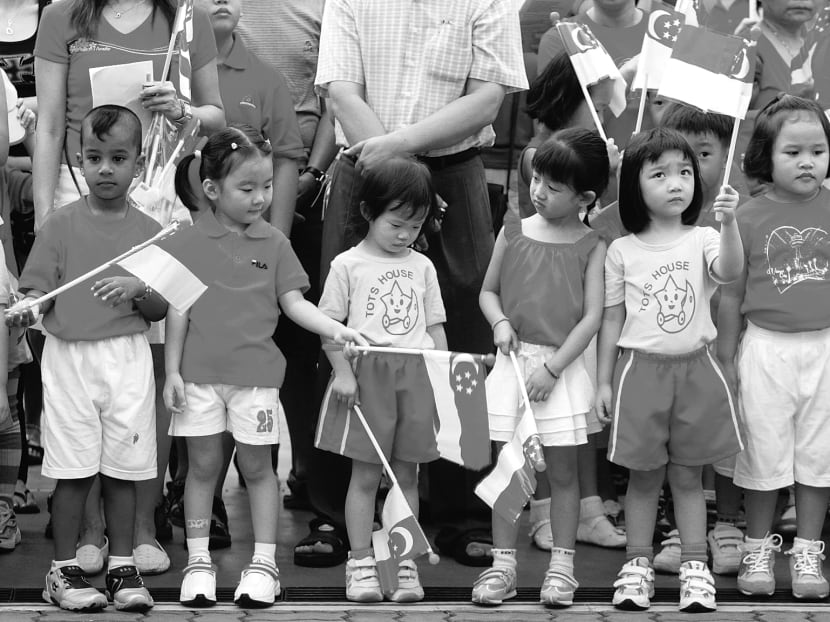Is Singapore truly multicultural?
The passing of cultural theorist Stuart Hall on Monday may not have garnered as much media attention as that of the actor Philip Seymour Hoffman, but it is an event that should prod Singaporeans to take stock.

Singapore has often prided itself on its multiculturalism, but this is premised on respecting differences that conform to neat categories of race and religion. Today File Photo
The passing of cultural theorist Stuart Hall on Monday may not have garnered as much media attention as that of the actor Philip Seymour Hoffman, but it is an event that should prod Singaporeans to take stock.
Hall has been hailed as the “godfather of multiculturalism”, and Singapore has often prided itself on being a good example of multiculturalism at work. Would Hall have agreed?
If Singapore epitomises multiculturalism, it is one with limited inclusivity. Our multiculturalism is premised on respecting differences that conform to neat categories of race and religion.
Yet human “cultures” are much more complex. First, not everyone professes race or religion as his or her primary identity marker. Second, members of a certain racial or religious group will have varied wants and behaviours, making it hard for anyone to speak on behalf of a community.
Given these, Singapore’s multiculturalism should not be seen as a national strength. In fact, it is a trait unbecoming of a self-professed global city. If we wish to stay sustainable, then we need to rethink our monolithic multiculturalism.
To be clear, multiculturalism here does not refer to an airy-fairy concept to be debated by academics, or a government buzzword to shape policies. Rather, I am talking about multiculturalism as it is lived out as an everyday reality in Singapore.
Consider the recent row over the Health Promotion Board’s (HPB) online brochure on sexuality.
The brochure, which recognises multiple sexual orientations, has come under fire because some believe it “dangerously promotes homosexuality”. Indeed, Singapore’s lived multiculturalism denotes that lesbian, gay, bisexual and transgender (LGBT) folks cannot be considered a viable minority in the same manner as Malay-Muslims, a category that checks both the race and religion boxes.
This is not to say that our version of multiculturalism is the sole cause of the HPB row. There are other motivations behind it, probably the most cited being that the teachings of Christianity and Islam forbid it. But even here, Singapore’s lived multiculturalism falls short.
According to a recent Institute of Policy Studies (IPS) survey, more than three-quarters of Singaporeans are iffy about sexual relations between adults of the same sex and gay marriages.
With Muslims and Christians collectively making up less than a quarter of Singaporeans aged 15 and over, according to the 2010 census, the IPS survey suggests that opposition to same-sex relationships must have also come from believers of supposedly more inclusive religions such as Buddhism and Taoism.
This means that religious identity does not have an essentialised nature, as assumed by our lived multiculturalism. In the same way, it is ridiculous to assume all Malay-Muslims are against LGBTs, or agree that the hijab is a compulsory Muslim practice.
Addressing the importance of multiple identities, Hall writes that the “multicultural question” for any society must be how it envisages the future of “peoples from very different backgrounds, cultures, contexts, experiences and positions”. This question is especially valid for Singapore.
Perhaps the way forward is to live according to another ideal — cosmopolitanism. Unlike multiculturalism, there is no need to uphold neat categories or essentialised natures. According to Hall, cities are the best place in which cosmopolitanism can naturally occur because they “bring elements together and establish relations of interchange and exchange”. Singapore as a global trade and travel hub qualifies as such a city.
To be fair, cosmopolitanism has had its detractors. Some say only the rich, who have the means to travel the world, can afford to be cosmopolitan. To this, one can counter that cosmopolitanism should not be an ideal defined by the number of places one has visited. Rather, it is the spirit of being open to someone or something vastly different from oneself.
The Indonesian author Andrea Hirata’s semi-autobiographical novel The Rainbow Troops (2005) best demonstrates this. Recounting the childhood experiences of poor children from Belitung Island, the novel outlines countless instances in which these children were able to connect with foreign and local influences without even leaving town.
Singaporeans can be just as inclusive. The pervasiveness of the Internet and global media here can facilitate a cosmopolitan existence without our having to leave home. Now that is something to be celebrated.
ABOUT THE AUTHOR:
Dr Nazry Bahrawi is a lecturer with the Singapore University of Technology and Design and research fellow at the Middle East Institute-National University of Singapore.









